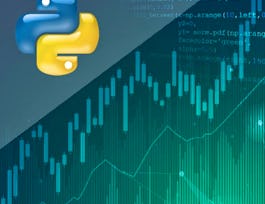This course is primarily aimed at undergraduates attending their final year or University students in monetary and financial economics, international macroeconomics and data mining. Professionals in Government institutions, Central Banks, business and the financial industry, along with other professionals interested in finance and macroeconomics, may also benefit from this course. The lectures, the tutorials and the activities lead the participants, step-by-step, through the system of financial accounts and provide unique hands-on guides to the macroeconomic databanks of the major national and international institutions (OECD, European Central Bank, US Federal Reserve System, Bank for International Settlements, IMF). At the end of the course students will gain a clear overview of the financial connections among the institutional sectors in market economies. Student activities include manipulations of data obtained from institutional websites with spreadsheets in order to construct tables and graphs.



Macroeconomic Financial Accounts


Instructors: Giuseppe De Arcangelis
Sponsored by Louisiana Workforce Commission
3,118 already enrolled
(11 reviews)
Recommended experience
Details to know

Add to your LinkedIn profile
23 assignments
See how employees at top companies are mastering in-demand skills


Earn a career certificate
Add this credential to your LinkedIn profile, resume, or CV
Share it on social media and in your performance review

There are 6 modules in this course
This course is primarily designed for undergraduates attending their final year or Master’s students in monetary and financial economics, international macroeconomics and data mining. Professionals in Government institutions, Central Banks, business and the financial industry, along with other professionals interested in finance and macroeconomics, may also benefit from this course. The lectures, the tutorials and the activities lead the participants step-by-step through the system of financial accounts and provide unique hands-on guides to the macroeconomic databanks of the major national and international institutions (OECD, European Central Bank, US Federal Reserve System, Bank for International Settlements, IMF). At the end of the course students will gain a clear overview of the financial connections among the institutional sectors in market economies. Student activities include manipulations of data obtained from institutional websites with spreadsheets in order to construct tables and graphs.
What's included
11 videos16 readings5 assignments1 peer review
1.2 Deriving net lending/net borrowing : national economy vs. rest of the world, balancing items, sectoral breakdowns
What's included
6 videos16 readings5 assignments1 peer review
1.3 Financial Transactions. Instruments and interconnections
What's included
9 videos15 readings4 assignments1 peer review
1.4 Stocks. Net Worth. Financial Wealth
What's included
6 videos11 readings2 assignments1 peer review
1.5 Accumulation
What's included
5 videos13 readings4 assignments1 peer review
1.6 Financial Accounts, Economic and Monetary Policy, Stability
What's included
7 videos17 readings3 assignments
Instructors


Offered by
Why people choose Coursera for their career




Learner reviews
11 reviews
- 5 stars
63.63%
- 4 stars
18.18%
- 3 stars
9.09%
- 2 stars
9.09%
- 1 star
0%
Showing 3 of 11
Reviewed on Feb 25, 2022
The course was well-prepared and the objective was successfully addressed. The speakers did their best in explaining all the concepts related to the course. Well done!
Recommended if you're interested in Business

EDHEC Business School

University of Michigan

Coursera Instructor Network

The Hong Kong University of Science and Technology

Open new doors with Coursera Plus
Unlimited access to 10,000+ world-class courses, hands-on projects, and job-ready certificate programs - all included in your subscription
Advance your career with an online degree
Earn a degree from world-class universities - 100% online
Join over 3,400 global companies that choose Coursera for Business
Upskill your employees to excel in the digital economy


